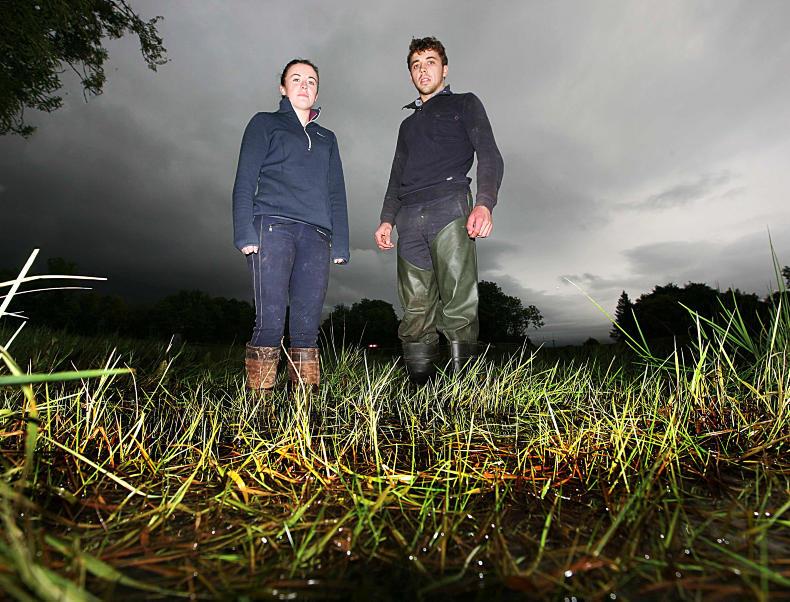“We fear that our fodder won’t see us through the winter,” says Graham Golden. It’s a problem not of his own making, and it’s one he shares with most of his neighbours.
Graham is a sheep and cattle farmer near Manorhamilton in north Leitrim. His cattle have been housed since mid-August, his slurry tanks are two-thirds full and his fields are soaking wet.
“We had to house the cows (bought to be fattened) as the land had become too wet to carry them and they were poaching,” he explains. At least Graham has a pit of good-quality silage saved this year. The silage last winter was poor, following the awful 2017 summer weather.
“We had to buy fodder to get us through the winter,” Graham recalls. While the silage, cut in the third week of June, is good, he doesn’t have enough. A second pit lies empty, with the grass that should have been cut more than a month ago sitting in water in the paddocks.
“The grass is too strong to graze now, we’ll have to cut it if we can,” he says. “But it’s too wet to even get in and top it.”
Graham is adjusting his plans for the winter, and the cattle shed could well lie empty or be less than full.
The weather is also having an effect on the sheep flock.
“Lameness is becoming a real problem,” he says. “Standing in wet ground every day takes its effect.”
James Gallagher, the Leitrim IFA chairman, explains that it’s the sheer persistence of rain in the area since early July, giving land no chance to soak, that is causing such chaos.
“A lot of farmers in the area graze with sheep prior to closing for a single big cut of silage,” he says.
Known as “late farmers”, many have not been able to take any silage off the land at all. James Gallagher wants some form of targeted aid for the farmers in north Leitrim.
“Some of the finest beef cattle in the country are produced here,” he said.
“The stock are good, the farmers are resourceful and committed, they get the best out of the land around here, but the weather has given them no chance this year, or last.”
As Graham Golden puts it: “It’s very hard to survive in farming here at present.”
He is committed, having just graduated with a degree in agribusiness from GMIT in conjunction with Mountbellew Agricultural College. He wants some signal of recognition, real support.
“Tillage farmers in badly weather- affected pockets were assisted last year,” he said. “We are in as big a hole as they were.”






 This is a subscriber-only article
This is a subscriber-only article





SHARING OPTIONS: